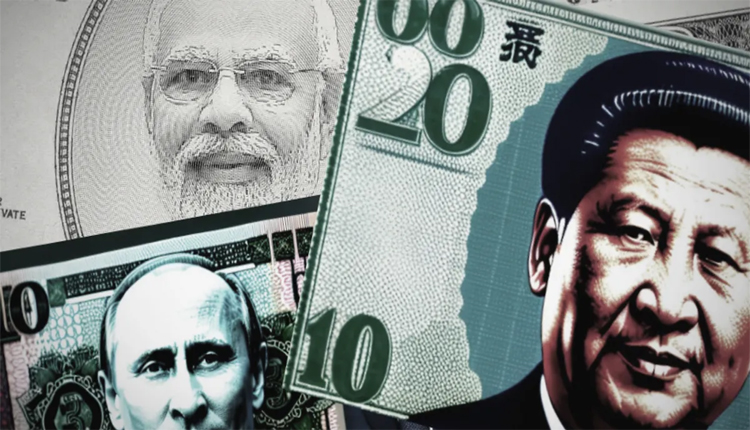New Delhi: A bold economic move that has sent ripples through the world trade dynamics, the BRICS Summit in Kazan has made waves. All of this and more was agreed to by India, Russia, and China among the BRICS nations as they promote the use of local currencies in international trade, signalling a major break from the dollar’s sliver of unipolar power. As global economic giants gathered in Russia, their message to the West was clear: Economic power is increasingly balanced.
Indian Prime Minister Narendra Modi, Russian President Vladimir Putin, Chinese President Xi Jinping and other leaders of the BRICS nations took the stage to announce a future in which consumer supply chains among BRICS countries are no longer linked to the US dollar. This could be a historic decision that will enable India to carry out transactions in rupees with its BRICS partners, reducing dependence on dollar dominated foreign exchange reserves.
A New Era of Global Trade
BRICS leaders agreed Wednesday to increase trade and enable financial settlements using local currencies in a joint declaration. It’s a decision that will transform global trade by helping facilitate faster, more cost efficient cross-border payments that don’t require currency conversion into dollars. The bloc also called for further streamlining of financial exchanges between members through the development of an independent settlement and depository infrastructure.
Plans were also discussed for a BRICS reinsurance company and the further economic ties within the BRICS and reducing our dependence on Western financial institutions.
A Stronger BRICS Bank
The leaders also spoke about enhancing the New Development Bank (NDB) for which the BRICS countries are seeking to make it a new breed of multilateral development institution. They said they supported expanding the NDB’s membership and strengthening its role in infrastructure and sustainable development across the member nations. They pledged reforms aimed at making the NDB more operationally effective, the line with the bank’s 2022-2026 strategy, designed to address issues of corporate and development needs.
Expanding the BRICS Bloc
From Brazil, Russia, India, China, South Africa to Egypt, Ethiopia, Iran, Saudi Arabia and the United Arab Emirates it has grown to be what it is today. It is a sign that BRICS is becoming more and more influential in global affairs and shifting the forcefulness of work in favour of the East. The bloc will get to do more economically and politically with new members included which will allow it to stretch its reach on continents.
Future Cooperation and Digital Infrastructure
The BRICS nations also agreed to explore joint activities aimed at developing secure, transparent and inclusive digital infrastructure. In the 21st century complete digitisation of human life is happening at very rapid pace and the group felt that it requires a cooperative approach to the way we handle these changes. In the declaration, the importance of data in the modern development was stressed and the BRICS countries were urged to work more closely to utilise this data, so it said.
A Challenge to the West
The agreements reached at the BRICS summit speaks a clear message to the West, particularly to the USA. BRICS is talking about local currencies and trade barriers reduction with the intent of developing a parallel economic framework that can work parallel to Western dominated systems. The move comes as part of the group’s larger objective of promoting a multi-polar world order based on independence from Western, especially US-led, financial mechanisms.
Next Steps for BRICS
The group assigned to its finance ministers and central bank governors the ongoing discussion of the use of local currencies, payment products and financial platforms. If the member countries can enforce these changes and manoeuvre global financial system the initiative will be successful.
The world’s watching as the BRICS bloc expands and seeks to be more self reliant from the dollar, to see if it will truly disrupt the dollar’s dominance in global trade. What is clear, however, is that the BRICS nations are serious about constructing a new financial terrain, one favouring local currencies and such independence from Western economic arrangements.



Comments are closed.